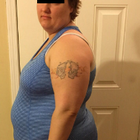Gastric Sleeve in France
Search and Compare the Best Clinics and Doctors at the Lowest Prices for Gastric Sleeve in France

Find the best clinics for Gastric Sleeve in France
With Medijump you can browse 3 facilities offering Gastric Sleeve procedures in France. The cheapest price available is $10,282 in Lyon. And for the cheapest price globally, prices start from $777 in Egypt.
Gastric Sleeve in Lyon
Price: $ 10,282
Egypt offers the best prices Worldwide
Price: $ 777
From 88 verified reviews
Stephanie Saradin, 21 September 2020
Hospitalisée pour une intervention en cardiologie, le personnel est très aimable et a l'écoute, voir même au petits soins. Les locaux sont propres et le matériel utilisé est vraiment de pointe
From 161 verified reviews
latifa Rabhi, 06 September 2020
Very fast support, with highly qualified and human staff.The rooms are beautiful and very quiet.Calm and gentleness in this hospital, I highly recommend.
Clinique du Parc, located in Chemin du Penthod, Lyon, France offers patients Gastric Sleeve procedures among its total of 3 available procedures, across 1 different specialties. The cost of a Gastric Sleeve procedure starts from ฿370,000, whilst the national average price is approximately ฿369,999. There is currently a lack of information available on the specialists practicing at the Clinic, and they are not accredited by any recognized accreditations institutes
- Home
- France
Compare Before & After Photos of _procedure_photos.phpGastric Sleeve


Front view


Full-side view


Front view


Front view


Front view


Front view
WHY US?
At Medijump, we're making medical easy. You can search, compare, discuss, and book your medical all in one place. We open the door to the best medical providers worldwide, saving you time and energy along the way, and it's all for FREE, no hidden fees, and no price markups guaranteed. So what are you waiting for?

Free

Best Price

Widest Selection

Risk-Free
What you need to know about Gastric Sleeve in France

The Gastric Sleeve procedure, also known as Vertical Sleeve Gastrectomy or Sleeve Surgery, is a minimally invasive surgical method designed to advocate weight loss and promote healthier living. It garners acclaim from medical professionals due to its effectiveness in helping patients shed an average of 65 to 70% of excess weight.
The expert surgeons at NYBG utilize the single-incision laparoscopic technique, making a solitary entry point through the belly button. This innovative approach results in minimal to no scarring and significantly reduces the recovery duration.
The surgery itself only takes about 35 minutes. During this time, the surgeon implements a diminutive camera, a laparoscope, along with several other instruments to perform the operation. With the help of a stapling apparatus, 85-90% of the patient's stomach is removed, leaving behind a banana-shaped stomach that is a mere 10-15% of the original volume.
What does a Gastric Sleeve Procedure Involve?
For your surgery, you'll be under general anesthesia, ensuring you're comfortably asleep throughout the procedure. Your surgeon will perform a laparoscopic surgery, making several small incisions on your upper abdomen where a laparoscope and tiny surgical instruments will be inserted.
Following this, the anesthesiologist will guide a sizing tube through your mouth and down into your stomach. With a laparoscopic stapler, the surgeon will partition the stomach, resulting in a narrowed vertical sleeve. The excess portion of the stomach that has been detached is then extracted from the abdomen through one of the incisions. Lastly, your surgeon may carry out a dye study or an upper endoscopy to double-check for any potential leaks in the newly formed sleeve.
How Long Should I Stay in France for a Gastric Sleeve Procedure?
Following a surgical procedure, patients typically reside in a rehabilitation centre for an initial 2 to 3-day period. Please note, that this duration can flex based on how the individual's body responds to the healing process.
It is highly recommended patients continue their stay in the pertinent vicinity for an additional 3 weeks subsequent to the surgical procedure. Such an arrangement allows for meticulous post-operative monitoring and fosters an environment conducive to a smooth recovery. A surgical procedure entails both physical and mental recovery; the latter being equally pertinent. An additional stay provides the necessary time to recuperate, rest and efficiently handle any post-surgical complications that could potentially arise.
What's the Recovery Time for Gastric Sleeve Procedures in France?
The time it takes to fully recover from Gastric Sleeve varies from one person to the other. Factors such as personal healing rates, specific techniques used during the surgery and overall health condition affect the recovery time. Generally, patients would typically need about three to five weeks for recovery.
During this healing period, it's essential to maintain a healthy lifestyle to speed up recovery and reduce potential complications. Part of this involves a proper diet. Since the procedure usually results in a smaller stomach size, you will need to adjust your eating habits. It's recommended to consume smaller meals throughout the day, focusing more on nutrient-rich foods.
Exercise is another crucial component of the post-procedure period. Stick to a regular workout routine to support sustained weight loss and overall health improvement. They suggest several strategies and provide important tips to stay healthy during your recovery period.
What sort of Aftercare is Required for Gastric Sleeve Procedures in France?
Going through the Gastric Sleeve is just the start of your path toward better health. After the treatment, it's crucial that you take good care of yourself for the full healing process and to ensure the success of the procedure. Part of this care involves sticking to a healthy diet, regular exercise, taking any medications as recommended by your doctor and keeping up with medical check-ups. Your dedication to these new lifestyle habits, especially with regard to your diet and physical activities can notably speed up your recovery and assist you in achieving your weight goals.
Equally, your mind requires care after the Gastric Sleeve. Undergoing such changes could bring about feelings that may impact your emotional state and overall adherence to these new lifestyle changes. In such cases, seeking professional mental health support can be beneficial in managing any stress, anxiety, or depression you might encounter. Balancing physical well-being and mental health is key to a full recovery and maintaining long-term health after undergoing the Gastric Sleeve.
What's the Success Rate of Gastric Sleeve Procedures in France?
The achievement fee for the Gastric Sleeve in France is usually high. Success is often gauged through the quantity of weight lost. Typically, patients can assume to shed approximately 60% to 70% of their excess weight.
The general fitness enhancement often discovered with Gastric Sleeve can result in improvements or maybe a complete decision of weight problems-related situations like hypertension, sleep apnea, cardiovascular sicknesses, and type 2 diabetes. However, fulfilment after the Gastric Sleeve is dependent on the commitment to lifestyle adjustments and publish-op care. Results can range based totally on the dedication to nutritional modifications along with other elements like exercising, genetics, and typical fitness popularity.
Are there Alternatives to Gastric Sleeve Procedures in France?
Yes, there are options for the Gastric Sleeve in France. These can be classified into non-surgical and surgical alternatives. Non-surgical alternatives include weight loss plans and lifestyle adjustments, scientific weight reduction applications, and prescription weight reduction medicines.
On the other hand, surgical options for the Gastric Sleeve consist of different bariatric surgical procedures like gastric bypass surgical procedure, adjustable gastric banding, duodenal transfer, and gastric balloon techniques. These options carry their personal set of advantages, fitness implications, and requirements.
What Should You Expect Before and After the Procedure?
Before the Gastric Sleeve, patients usually have an intensive scientific evaluation and are required to observe a pre-operative eating regimen, to limit surgical headaches and useful resource recovery. Patients additionally undergo a psychological assessment to evaluate their emotional readiness for surgery and the subsequent way of life modifications.
Post-manner, maximum patients will stay in the clinic for two to a few days to be monitored. Gradual nutritional changes occur over the next several weeks, progressing from clean liquids to pureed foods, onto gentle foods and finally, strong meals. Both vitamins and exercise plans are customized for man or woman sufferers.
What's the Key to Long-Term Success with Gastric Sleeve in France?
Surgical intervention is an important part of the Gastric Sleeve, but it's not the only factor that ensures long-term success. A larger part of this success is the adoption of a healthier lifestyle post-procedure. Regular exercise, attending follow-up medical appointments, vigilantly monitoring your vitals, keeping an eye on your nutrition intake, and adhering to prescribed medication regimes are fundamental components of this lifestyle. A commitment to these practices guarantees sustainable results, as the procedure alone may not uphold the achieved results indefinitely.
Incorporating changes into daily routines forms another essential half of this post-treatment lifestyle. Conscious meal planning, mindful eating, moderating portion sizes, and avoiding high-calorie drinks or snacks are beneficial dietary changes. Also, routine physical activity and maintaining an active life can help retain an optimized body weight. More importantly, mental and emotional support from loved ones - and at times professional counselling - can greatly improve the chances of adherence to these new routines. Finally, remember that this isn't just a treatment procedure but a significant shift towards a healthier lifestyle for the betterment of your future.
Where Can I Get the Best Gastric Sleeve Care in France?
There are many great healthcare centres in In France. They offer good care and treatments for people having the Gastric Sleeve. When picking on one, remember to look at the doctor's experience, the certifications of the facility, what other patients say about them, and if they are accredited.
Make sure they also offer aftercare once the Gastric Sleeve is done. This includes advice about what to eat and how to keep healing. This can help you stay healthy after surgery and is very important for the success of the Gastric Sleeve. Meeting with a support group can also help you in the long run.
How Can Gastric Sleeve Improve My Quality of Life?
Gastric Sleeve can significantly improve your quality of life in various ways. The principal benefit of it is the significant weight loss you can achieve. This dramatic change in body mass can reduce your vulnerability to long-term health issues like diabetes and heart disease.
Another advantage of Gastric Sleeve is the improvement in your confidence. A boost in self-esteem inevitably leads you to feel content and positive about life. Severe health problems like sleep apnea can also be mitigated with this treatment. So, Gastric Sleeve isn't just about physical transformation, it's about leading a healthier, happier life in France.
Whilst the information presented here has been accurately sourced and verified by a medical professional for its accuracy, it is still advised to consult with your doctor before pursuing a medical treatment at one of the listed medical providers
No Time?
Tell us what you're looking for and we'll reachout to the top clinics all at once
Enquire Now

Popular Procedures in France
Prices Start From $1

Prices Start From $359

Prices Start From $435

Prices Start From $75

Prices Start From $435

Recommended Medical Centers in France for Gastric Sleeve

- Interpreter services
- Translation service
- Religious facilities
- Medical records transfer
- Medical travel insurance
- Health insurance coordination
- TV in the room
- Safe in the room
- Phone in the room
- Private rooms for patients available

- Interpreter services
- Translation service
- Religious facilities
- Medical records transfer
- Medical travel insurance
- Health insurance coordination
- TV in the room
- Safe in the room
- Phone in the room
- Private rooms for patients available

- Interpreter services
- Translation service
- Religious facilities
- Medical records transfer
- Medical travel insurance
- Health insurance coordination
- TV in the room
- Safe in the room
- Phone in the room
- Private rooms for patients available

- Interpreter services
- Translation service
- Religious facilities
- Medical records transfer
- Medical travel insurance
- Health insurance coordination
- TV in the room
- Safe in the room
- Phone in the room
- Private rooms for patients available

- Interpreter services
- Translation service
- Religious facilities
- Medical records transfer
- Medical travel insurance
- Health insurance coordination
- TV in the room
- Safe in the room
- Phone in the room
- Private rooms for patients available

- Interpreter services
- Translation service
- Religious facilities
- Medical records transfer
- Medical travel insurance
- Health insurance coordination
- TV in the room
- Safe in the room
- Phone in the room
- Private rooms for patients available

- Interpreter services
- Translation service
- Religious facilities
- Medical records transfer
- Medical travel insurance
- Health insurance coordination
- TV in the room
- Safe in the room
- Phone in the room
- Private rooms for patients available
Gastric Sleeve in and around France
About France
France, renowned for its architecture, art, cinema, cuisine, fashion, literature, music, and wine, with the most significant attraction being its glorious capital city, Paris - home to the famous Eifel Tower. With its small medical tourism industry, France sees far fewer medical tourists than its neighbors Germany and Spain, however, many travel each year for Gastric Sleeve procedures among other popular procedures. Other than Paris, popular locations for private medical centers, include Bordeaux, Lyon, and Montpellier.
Popular Parts of France
France has welcomed more than 80 million visitors in the past few years. The country does have a lot to offer, from culture to iconic landscapes, making it an ideal place to spend a memorable holiday.
- Paris, the capital of France, is an international center of culture, fashion, art, and gastronomy. Hundreds of writers have written about their love of this city, and it is easy to see why. With thousands of years of history, the city is filled with iconic monuments. Some of the most famous and most visited landmarks are the Eiffel Tower, Arc de Triomphe, and Notre Dame. This stunning city is also known for its art nouveau cafes with pretty chairs lining the terrace and the beautiful banks of the Seine that are perfect for romantic walks.
- Bordeaux is known for its wine, lively restaurant scene, and the futuristic La Cité du Vin. Tourists can take a tour of a winery and taste some of the world’s best wines. Complete the wine tour by visiting La Cité du Vin, an ultra-modern cultural center that provides comprehensive information about wine production. Other than the wine, there are countless things that tourists can do in this city. Visit Place de la Victoire, a pretty square with amazing architecture, or visit Musée D’Aquitaine to see historical collections from all around the Aquitaine region.
- Lyon is the third-largest city in France and it is famous for its cuisine and historical landmarks. The city was an important area for silk production and had lots of trade with Italy and tourists can see the Italian influence in the city’s architecture. The city attracts travelers to come and visit its many museums such as the Museum of Fine Arts of Lyon, Museum of Miniatures, and Textile Museum. Tourists who love cinema will be delighted to explore the Lumiere Institute. Since Lyon is famous for its gastronomic scene, tourists should taste its famous specialties in a Bouchon.
- Nice is the second-largest tourist destination in France. Located on the Mediterranean coast, the city is brimming with stunning beaches, hilltop lookouts, and glamorous restaurants. Thanks to its Mediterranean climate, it is always filled with sun-seekers all year round. The city in the past also attracted many artists such as Henri Matisse, Marc Chagall, Pablo Picasso, and Pierre-Auguste Renoir. The city pays tribute to the artists in its top museums, the Musée Chagall and the Musée Matisse.
- Marseille is the second most populated city in France. Found by Greek sailors in 600 BC, it is one of the oldest cities in Europe. With a complex history, it is now a melting pot of different cultures. Discover the city by shopping in one of the colorful markets like the Noailles market. Do not forget to visit the Calanques to admire its beauty, wander around the interesting Mucem, get lost in Le Panier, and stroll around the scenic Corniche.
Weather and Climate in France
France generally enjoys mild summers and cold winters except in the Mediterranean area, which enjoys mild winters and hot summers. Spring starts in March and ends in April and the streets in spring are bursting with colors, making it a beautiful time to visit the country. It rains a lot during this season but the weather will start to brighten up in April. The temperature ranges between 7.5 °C in early March and 13.6 °C in May. June is when the summer starts and this season is a high season for tourism. The average temperature in summer is around 24 °C and the season experience little rainfall (around 11 days every month).
Autumn lasts from September to November. With an average of 12 °C, the temperature is still pretty mild to enjoy some outdoor activities. The temperature will slowly decrease in November when it reaches an average of 7.5 °C. Autumn is also the season of grape harvests, meaning it is a great time for wine tours. Winter is during the months of December to February and the weather can be really cold during this season with an average temperature of 5 °C. Despite the cold, December can be a delightful time to visit the country since it is one of the most festive months in France.
Getting Around in France
France has 34 airports, but the busiest are the airports in Paris: Paris Charles de Gaulle and Orly. Paris Charles de Gaulle Airport is the largest airport in France and the second largest in Europe. The airport serves domestic and international flights. It connects France with almost every country around the globe. It also serves budget airlines such as EasyJet and Norwegian Air Shuttle. While Charles de Gaulle airport serves as the main airport, Orly Airport serves as a secondary hub for domestic and overseas territories flights.
Traveling around France is easy. The wide range of airports let tourists travel around the country quickly by domestic flights. The country also has a great rail system since it is the creator of the earliest high-speed train system. The TGV (Train a Grande Vitesse) connects 150 cities in the country and Europe. It speeds up to 200 miles per hour. Other than the TGV, there are also Intercity trains, TER, and AutoTrain. The easiest way to buy train tickets is online. The prices vary widely but you will get good bargains if you book early. Before getting on the train, remember to validate your ticket in yellow machines known as compostage de billets.
Taxis can be found easily around France and you can hail a taxi from a taxi rank (station de taxi) outside railway stations, airports, or main areas in cities. You can also hail one directly from the street or by telephone. The taxis are metered and the base fare is around €4.10. If there are more than four passengers, there will be an extra fee of €2.50 and the driver can charge an extra €2 if you have a lot of luggage and Taxis are usually more expensive in Paris.
Tourist Visas in France
France is a member of the Schengen Agreement. Therefore, holders of ordinary passport from 62 countries including Australia, Malaysia, Singapore, and the United States do not need a visa to enter the country for short stays of up to 90 days. Other nationals not listed need to apply and obtain a visa before entering the country. It is advisable to always check at the nearest France embassy or consulate for a France visa.
Additional Information
- Local Currency: The official currency in France is the Euro (€). US$1 converts to €0.85.
- Money & Payments: ATMs (known as DAB - distributeurs automatiques de billets) are widely available in the country, particularly in airports, train stations, and street corners. Credit and debit cards are accepted almost everywhere, including shops, supermarkets, restaurants, and hotels. Tipping can sometimes be mandatory, usually around 10% in restaurants.
- Local Language: French is the official language. Most people in large cities will speak English, especially in hotels and tourist sites. But it is better to know some French.
- Local Culture and Religion: France has a diverse religion under secular principles. The major religion in the country is Christianity, but other religions such as Islam, Buddhism, and Judaism are freely practiced.
- Public Holidays: There are 11 official public holidays in France, including New Year’s Day, Easter Monday, Bastille Day, and Christmas Day.
Popular Searches
- Plastic Surgery in Thailand
- Dental Implants in Thailand
- Hair Transplant in Thailand
- Breast Augmentation Thailand
- Gastric Sleeve in Thailand
- Gender Reassignment Surgery in Thailand
- Laser Hair Removal in Bangkok
- Botox in Bangkok
- Dermatology in Bangkok
- Breast Augmentation in Bangkok
- Coolsculpting in Bangkok
- Veneers in Turkey
- Hair Transplant in Turkey
- Rhinoplasty in Turkey
- Stem Cell Therapy in Mexico
- Rhinoplasty in Mexico
- Liposuction in Mexico
- Coolsculpting in Tijuana
- Rhinoplasty in Korea
- Scar Removal in Korea
- Gastric Sleeve in Turkey
- Bone Marrow Transplant in India
- Invisalign in Malaysia
- Plastic Surgery in the Dominican Republic
- Tummy Tuck in the Dominican Republic
- Plastic and Cosmetic Surgery in Poland
- Rhinoplasty in Poland
- Hair Implant in Poland
- Dental Implants in Poland
- IVF in Turkey


